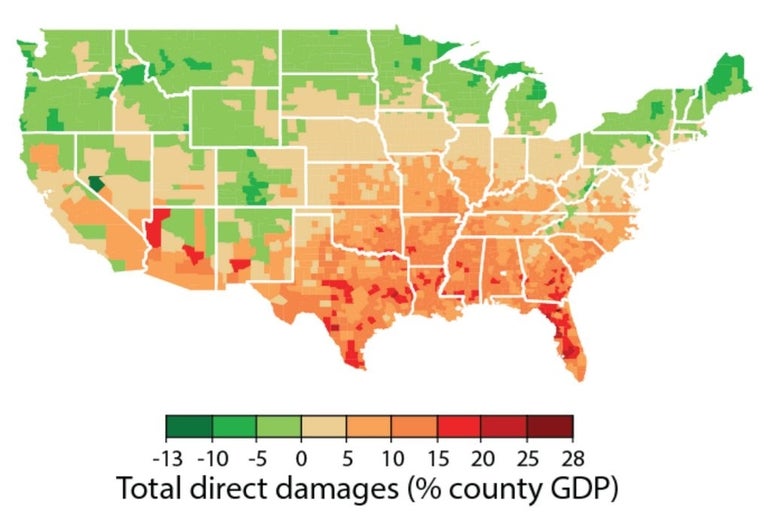Worcester County, along with much of Massachusetts and the rest of New England, would actually benefit economically from climate change, according to a new study published in the June 30 issue of the journal Science.
Cooler-weather locations would, in many cases, benefit by milder winters and therefore lower energy costs and lower mortality rates, researchers from the Climate Impact Lab at the University of Chicago found.
Massachusetts winters would be as much as 9 degrees warmer on average by the end of the century, the study forecasts, while many states across the South and Midwest would have summers — which can already be oppressive — 6 or 8 degrees hotter.
Most of Massachusetts would benefit, except for Essex and Middlesex counties, Dukes County, which covers Martha’s Vineyard, and Hampden County, which includes Springfield. Along with the whole East and South coasts, Massachusetts would be hurt by coastal damages, but improvements to mortality rates and energy costs would, in the case of most of New England, outweigh those costs, according to the researchers who were a combination of scientists and economists.
Every county in Maine, New Hampshire and Vermont would benefit, the study found, along with large swaths of northern states, from Michigan and Wisconsin to Washington and Oregon.
Across much of the South, from North Carolina and Florida to Texas and Arizona, economic damage would be worst: 5 percent to 15 percent or more of county GDP.
Climate change would disproportionately affect areas already tending to be poorer, researchers found. “Because losses are largest in regions that are already poorer on average, climate change tends to increase pre-existing inequality in the United States,” they wrote.
Overall, the economic effects would be largely negative, the researchers made clear. They estimate that 1.2 percent of gross domestic product would be lost for each 1-degree Celsius increase in temperature as most scientists expect.
The study looked at economic effects of rising sea levels, higher mortality rates, falling agricultural yields, costlier electricity and other factors through the end of the century.

